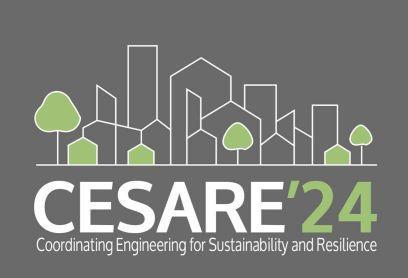Speaker
Description
The role and evolution of lightweight structures with enhanced thermal insulation properties have experienced significant growth. These structures play a crucial role in mitigating the environmental impact of buildings throughout their lifespan. There is a burgeoning interest in exploring various agricultural by-products as effective aggregates for filling framed timber structures. Natural fibers, such as hemp and flax shives, are gaining attention for their remarkable environmental benefits, including biodegradability, renewability, recyclability, composability, and their potential to reduce greenhouse gas emissions.
By harnessing these natural fibers, it becomes possible to reduce emissions associated with the most popular wall structures. Moreover, this approach contributes to the reduction of agricultural waste and facilitates its integration into a circular economy model. This study delves into the effects of bio-composites created from hemp and flax shives, combined with starch, gypsum, and a geopolymer binder, in the fabrication of lightweight timber structures. These lightweight structures are compared both among themselves and with conventionally used wall structures, assuming one square meter of wall with a specific U-value as the comparative unit.
Results from a life cycle assessment reveal that the use of these innovative lightweight timber wall structures yields CO2 emissions ranging from 11.6 to 84.3 kg of CO2 equivalent per square meter. In contrast, when compared to traditional brick wall constructions, these structures offer the potential for substantial savings, with the potential to reduce emissions by up to 117.74 kg of CO2 equivalent per square meter. This research underscores the promising environmental advantages of utilizing natural fiber-based bio-composites in the construction of lightweight timber structures, emphasizing their potential to significantly reduce carbon footprints in building construction.
| Topics | Circular economy, Environmental engineering, Sustainable product design, Green technology for civil engineering, Green buildings |
|---|---|
| Keywords | Life cycle assesment, bio-baset composites, thermal insulation, hemp, binder |

